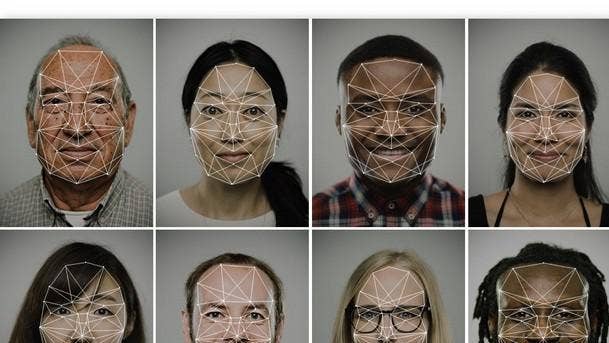The 10 Biggest Cloud Computing News Stories Of 2020 (So Far)
CRN breaks down the top cloud news midway through the year—from coronavirus-fueled cloud spending to cloud leaders decrying racial injustice to the explosion of cloud-based videoconferencing.

Cloud Computing In The Spotlight
The shift to cloud computing took on even greater urgency this year with the onslaught of the coronavirus (COVID-19) pandemic, which forced the closure of nonessential businesses and a shift to remote working and learning, and required some businesses—including online retailers—to rapidly scale up their services.
The pandemic has been fueling cloud computing spending, and the leading cloud providers offered their infrastructure capabilities to help frontline workers and research efforts combat the virus.
Cloud and other technology companies stepped up to denounce racism and racial injustice in the wake of the death of George Floyd, a 46-year-old Black man, while in the custody of the Minneapolis police in May. Some promised to diversify their workforces and pledged millions of dollars to anti-racism and social justice causes.
Here’s our look at other top cloud news, including changes in the top leadership for IBM and Red Hat, layoffs by Big Blue, the general availability of Google Cloud’s hybrid and multi-cloud Anthos platform, new HPE GreenLake standardized building block cloud services and the continued controversy surrounding the Joint Enterprise Defense Infrastructure (JEDI) cloud computing contract award to Microsoft.

10. JEDI Controversy Continues
The controversy surrounding the U.S. Department of Defense’s award of the potentially $10 billion Joint Enterprise Defense Infrastructure (JEDI) cloud computing contract to Microsoft last October continued through the first half of 2020.
The latest salvos came last month, when Microsoft Corporate Communications Vice President Frank Shaw wrote a blog asking rival Amazon Web Services to “stand down” from its litigation and protest of the commercial cloud transformation contract.
AWS, which was considered a favorite to win the contract, filed a lawsuit in November, alleging President Donald Trump politically interfered in the contract deliberations due to his "disdain" for Amazon CEO Jeff Bezos, who also owns The Washington Post. AWS is seeking court-ordered depositions of Trump and U.S. Secretary of Defense Mark Esper.
“… The Department of Defense’s decision to source a Joint Enterprise Defense Infrastructure contract to deliver the latest advancements in enterprise cloud could be a great step forward,” Shaw wrote. “But only if Amazon gets out of the way.”
AWS had filed “yet another protest” about Microsoft’s win with the Department of Defense, which Shaw characterized as “likely yet another attempt to force a redo, because they bid high and lost the first time.” AWS said it’s seeking clarity on how DOD officials are amending a request for proposal (RFP) that a federal judge found deficient on at least one factor related to how source-selection was evaluated for the JEDI initiative.
“The only thing that’s certain about Amazon’s new complaint is that it will force American warfighters to wait even longer for the 21st century technology they need—perpetuating Amazon’s record of putting its own interests ahead of theirs,” Microsoft’s Shaw wrote.
AWS responded with its own blog post by Drew Herdener, Amazon’s vice president of worldwide communications, who said AWS wouldn’t back down.
“We don’t think the JEDI award was adjudicated fairly, we think political interference blatantly impacted the award decision, and we’re committed to ensuring the evaluation receives a fair, objective and impartial review,” he wrote. “To be clear, we won’t back down on this front regardless of whether Microsoft chooses to try to bully its way to an unjust victory. We also won’t allow blatant political interference or inferior technology to become an acceptable standard. We have great respect and admiration for those who serve and are honored to support the DoD, but we will not sit idle nor apologize for doing what we believe is right, fair and just.”
In February, Judge Patricia E Campbell-Smith, who sits on the U.S. Court of Federal Claims, ordered Microsoft not to move forward with task orders and implementation of the cloud transformation initiative, citing a deficiency in Microsoft’s nearline storage capabilities. Campbell-Smith gave the DOD 120 days to further look into Amazon’s complaints about the evaluation of six technical criteria in the JEDI source-selection process. The DOD subsequently amended the RFP, but the changes were not made public.

9. HPE GreenLake Blockbuster
Hewlett Packard Enterprise this month unveiled a “huge step forward” in its GreenLake pay-per-use channel model, moving from a bespoke, customized model to a standardized group of 17 “building block” offerings for small, medium and large businesses.
HPE said the building block breakthrough should allow partners to reduce the sales cycle to 14 days or less from price quote to delivery, from what previously took as long as six months, CRN’s Steven Burke reported.
The new HPE GreenLake Cloud Services, which include container management, machine-learning operations, data protection, networking, virtual machines (VMs), storage and compute, will help customers modernize their applications and data in the environments of their choice, from the edge to the cloud. Based on preintegrated building blocks, they’re being sold in small to large configurations.
HPE also is bringing the full GreenLake Cloud experience to HPE.com, where customers can try and price packages ranging from disaster recovery/backup to private cloud and containers as a service, and then purchase them through HPE partners.
“This is really built for the channel,” HPE Senior Vice President Keith White told CRN. “This gives them much more standardized opportunities to deliver these services, such as virtual machines or containers or machine-learning-type capabilities, depending on what they want to deliver to their customer set. It gives them that flexibility.”
HPE is building a next-generation partner ecosystem, moving deeper into the channel with systems integrators, managed service providers, independent software vendors, telcos and colocation providers, according to White.

8. IBM Layoff Reports
Reports of widespread IBM layoffs grabbed headlines in May amid the coronavirus pandemic, with The Wall Street Journal and Fox Business, among others, saying Big Blue had confirmed cuts said to span job types, product divisions and corporate locations across the U.S., including its cloud infrastructure, security and health-care divisions.
In a statement to CRN, an IBM spokesperson noted employees recently let go by the company would get an extension of their medical insurance benefits.
“Recognizing the unique and difficult situation this business decision may create for some of our employees, IBM is offering subsidized medical coverage to all affected U.S. employees through June 2021,” the spokesperson said. “IBM's work in a highly competitive marketplace requires flexibility to constantly add high-value skills to our workforce. While we always consider the current environment, IBM's workforce decisions are in the interest of the long-term health of our business.”
In IBM’s January earnings call, IBM CFO Jim Kavanaugh had said the company would take “structural actions” to improve cost-competitiveness, especially in its global technology services unit that offers hardware and infrastructure consulting services. During IBM’s April earnings call, Kavanaugh said, “We’ve taken actions within our own business to help IBM better operate in this environment and emerge stronger. We took structural actions to improve the competitiveness of our global technology services business and enable new ways of working across our operations. Our actions will deliver annualized gross savings of nearly $2 billion.”

7. GA Of Google Cloud Anthos On AWS
Google Cloud in April announced the general availability of Anthos on AWS, about a year after unveiling the hybrid and multi-cloud platform at its Next ’19 conference in San Francisco.
Anthos allows customers to build and manage applications across environments— in their on-premises data centers, on Google Cloud and on rival third-party clouds, including AWS and Microsoft Azure.
Anthos is seeing “very good momentum” among customers and partners, Google Cloud CEO Thomas Kurian told CRN in an exclusive interview at the cloud provider’s Sunnyvale, Calif., headquarters in March. Cleveland-based KeyBank uses Anthos to optimize its test, development and delivery processes across an on-premises environment and Google Cloud Platform (GCP), and retailer Kohl’s uses it across GCP and other public clouds. Other customers include HSBC, Kaeser Kompressoren, DenizBank and OpenText.
Google Cloud also announced deeper Anthos support for VMs that would allow customers and partners to extend Anthos’ management framework to the types of workloads that make up the vast majority of existing systems, according to Jennifer Lin, Google Cloud’s vice president of product management.
“With Anthos Config Management, you can now use a programmatic and declarative approach to manage policies for your VMs on Google Cloud just as you do for your containers,” Lin wrote in a blog post. “This reduces the likelihood of configuration errors due to manual intervention, while speeding up time to delivery. In the meantime, the platform ensures your applications are running with the desired state at all times.”
In the coming months, Anthos Service Mesh will include support for applications running in VMs, so customers can consistently manage security and policy across different workloads in Google Cloud, on-premises and in other clouds, according to Lin.
Google Cloud also simplified application modernization with its latest release of Migrate for Anthos, which lets customers cut their costs and improve performance without having to manually rearchitect or replatform workloads, according to Lin.
Later this year, Google Cloud plans to give customers the ability to run Anthos with no third-party hypervisor, “delivering even better performance, further reducing costs and eliminating the management overhead of yet another vendor relationship,” she said.
Anthos on Microsoft Azure now is being tested with customers.

6. New President And CEO For IBM
IBM Chairman, President and CEO Virginia Rometty in January announced her plans to step down after eight years.
Arvind Krishna (pictured), formerly the company's senior vice president for cloud and cognitive software, took the top spot in April, becoming IBM’s 10th CEO in the enterprise giant’s 108-year-history. James Whitehurst, formerly senior vice president of IBM and CEO of Red Hat, was named IBM president.
Rometty had led IBM through its longest financial downturn and transition to focusing on cloud computing and building its artificial intelligence (AI) capabilities. She re-energized the company with last July’s $34 billion purchase of open-source software vendor Red Hat, one of 65 acquisitions completed during her tenure.
Solution providers interviewed by CRN cited the need for Krishna to reinvigorate IBM’s channel strategy to grow its cloud services revenue and strengthen partners’ midmarket and enterprise businesses. And in May, IBM said it was significantly re-engineering its IBM PartnerWorld channel program to prepare partners for building custom solutions and providing integrated hybrid cloud services.
During his keynote address at the IBM Think Digital conference in May, Krishna told virtual attendees that AI, the cloud and 5G networks are the “powerful core technologies all of you will use to translate how business operates.” Blockchain and quantum computing also will play a major role in digital technology transformations of the future, he said. Krishna cited an open hybrid cloud computing platform—thanks to its Red Hat acquisition—as IBM’s competitive advantage in those technologies.
“We have joined forces with Red Hat to give you the needed capability to build mission-critical apps once and run them anywhere,” he said.

5. Facial Recognition Technology Bans For Police
Technology companies adjusted their stances on the use of facial recognition technology by police in the wake of the death of George Floyd while in Minneapolis police custody in May. The 46-year-old Black man died after a white police officer kneeled on his neck for over nine minutes during his arrest, touching off Black Lives Matter protests and calls for reform across the country and globally.
Earlier this month, in a letter to Congress on racial injustice reform, IBM CEO Arvind Krishna said the company no longer offered general-purpose facial recognition or analysis software.
“IBM firmly opposes and will not condone uses of any technology, including facial recognition technology offered by other vendors, for mass surveillance, racial profiling, violations of basic human rights and freedoms or any purpose which is not consistent with our values and principles of trust and transparency,” Krishna wrote. “We believe now is the time to begin a national dialogue on whether and how facial recognition technology should be employed by domestic law enforcement agencies. Artificial intelligence is a powerful tool that can help law enforcement keep citizens safe. But vendors and users of Al systems have a shared responsibility to ensure that Al is tested for bias, particularity when used in law enforcement, and that such bias testing is audited and reported.”
AWS this month instituted a one-year ban that prevents police from using its Amazon Rekognition image and video analysis tool, which was introduced in late 2016. AWS renewed its call for stronger federal governmental regulations for the ethical use of facial recognition technology to prevent a state-by-state piecemeal approach. CEO Andy Jassy previously had supported law enforcement’s use of the tool, saying AWS strongly recommends that results not be used unless they are backed by at least 99 percent confidence levels and then only as “one piece of a human-driven decision like any other piece of evidence.”
Meanwhile, Microsoft this month said it would not sell its facial recognition technology to police until federal regulations “grounded in human rights” are enacted. The tech giant, which previously had not been selling the technology to U.S. police, told CRN that “for the past two years, we have been focused on developing and implementing strong principles that govern our use of facial recognition, and we’ve been calling for strong government regulation.”
“We’re committed to working with others to advocate for the legislation that is needed,” the company said in a statement. “We’re also taking this opportunity to further strengthen our review processes for any customer seeking to use this technology at scale."
In March, Microsoft President Brad Smith had blogged that “the risk of bias is real” in using facial recognition technology and hailed new state of Washington legislation enacting specific legal controls “while regulating the risks inherent in the technology.”

4. Explosion Of Cloud-Based Videoconferencing
The use of cloud-based videoconferencing—think Microsoft Teams, Google Meet, Zoom, Amazon Chime, Slack and Cisco Webex—has exploded during the coronavirus pandemic due to stay-at-home advisories that mandate working and learning from home and the closures of nonessential businesses.
Microsoft Teams now has more than 75 million daily active users, the cloud provider reported during a third-quarter earnings call in April, up from 44 million reported on March 19. Microsoft this month expanded Teams to a 49-person gallery from the previous maximum of nine visible participants, bringing it in line with Zoom.
AWS CEO Andy Jassy said the use of videoconferencing by AWS employees during the pandemic has changed AWS’ thinking about its hiring and how meetings will evolve once more employees return to its offices.
“For a long time … we really wanted to ... hire people in locations where we had critical mass because it was easier for them to have the right career path and interact with their teammates more effectively and to have job mobility in a different way,” Jassy said this month. “How effectively we've all worked in a videoconferencing environment has changed our view on where we hire people and whether it's OK to have smaller numbers of people in more locations.”
Videoconferencing also has proved to be more inclusive for meetings, leveling the playing field because “everybody just gets a square,” Jassy said.
“A lot of people who normally don't get to participate as visibly are able to do so,” he said.
AWS and parent company Amazon.com use Amazon Chime for videcoonferencing and online meetings. As part of a new multiyear deal unveiled this month, Slack will integrate Amazon Chime SDK (software development kit) to power video, audio and screen-sharing capabilities for its workplace messaging and collaboration platform. And AWS will extend the use of Slack to its own employees.
Slack added a record 90,000 new free and paid customers in the first quarter for a total of 750,000, it said this month.
*What* will it take for us to refuse to accept these unjust killings of black people? How many people must die, how many generations must endure, how much eyewitness video is required? What else do we need? We need better than what we're getting from courts and political leaders.
— Andy Jassy (@ajassy) May 30, 2020
3. Cloud Leaders Denounce Racial Injustice
Cloud leaders used Twitter and other social media platforms to denounce racism and racial injustice as Black Lives Matter protestors mounted large-scale demonstrations nationwide in outrage over the death of Floyd.
“*What* will it take for us to refuse to accept these unjust killings of black people?” AWS CEO Andy Jassy tweeted on May 30, when protests in Seattle, Amazon’s headquarters city, took a violent turn. “How many people must die, how many generations must endure, how much eyewitness video is required? What else do we need? We need better than what we're getting from courts and political leaders.”
Another tweet by Amazon stated that the “inequitable and brutal treatment of Black people in our country must stop.”
“Together we stand in solidarity with the Black community—our employees, customers and partners—in the fight against systemic racism and injustice,” Amazon tweeted.
Alphabet and Google CEO Sundar Pichai drew attention to Google’s support for racial equality on its U.S. Google and YouTube home pages.

2. Coronavirus Fueling Cloud Revenue
AWS, Microsoft Azure and Google Cloud have been the backbone supporting the dramatic scaling of online applications and shift to remote work, entertainment and online shopping.
Their public cloud infrastructures have enabled videoconferencing, remote project collaboration, e-commerce, education, gaming and streaming video companies to meet the huge, unplanned surge in demand, as CRN Senior Editor Joseph Tsidulko wrote in March.
“The majority of companies have been able to continue to operate because of the cloud,” Jeff Aden, executive vice president of Seattle-based 2nd Watch, told CRN.
As Apurva Joshi, vice president of New York cloud provider Digital Ocean, said: “Cloud services are an unsung hero in enabling this massive, sudden shift to a remote-first workforce. It's easy to forget, but 10 years ago, none of this would have even been possible.”
Coronavirus is fueling cloud spending, with a majority of enterprises expecting their cloud usage to exceed plan this year due to impacts of the pandemic, according to the ninth annual Flexera 2020 State of the Cloud Report. Fifty-nine percent of enterprises expected their cloud usage will be slightly or significantly higher than planned, and half of small and midsize businesses expected their cloud usage to escalate, the Flexera survey indicated.
Usage of Windows Virtual Desktop, Microsoft’s desktop and app virtualization service running in the Microsoft Azure cloud, tripled in the third quarter as organizations were required to work remotely.
“If you think about it, like the orders of magnitude increase we've seen in usage, in our own case with our applications such as Teams or Virtual Desktop, have been tremendous,” Microsoft CEO Satya Nadella said during a fiscal third-quarter earnings call in April.
“As COVID-19 impacts every aspect of our work and life, we have seen two years' worth of digital transformation in two months,” Nadella said. “From remote teamwork and learning to sales and customer service to critical cloud infrastructure and security, we are working alongside customers every day to help them stay open for business in a world of remote everything.
Revenue from Microsoft's intelligent cloud segment climbed 27.2 percent during the quarter, to $12.28 billion, up from $9.65 billion during the same period last year, fueled by a 59 percent spike in Azure revenue.
"There is no question that moving to the public cloud, even at a time like this, is just capital-efficient," Nadella told analysts during the earnings call, as CRN Senior Technical Editor Kyle Alspach reported. "Even for businesses that are having tough economic cycles, one of the smartest things that anyone can do ... is to transition to the efficient frontier as quickly as possible, so that they can have more agility, more elasticity and better unit economics coming out of this or even while you're in this crisis. Migration to the cloud is absolutely a secular shift."

1. Cloud Providers Helping Frontline COVID-19 Efforts
AWS, Microsoft Azure and Google Cloud also have stepped up to play critical roles during the coronavirus crisis by assisting first-responders, hospitals, drug developers and research efforts.
AWS is collaborating with the World Health Organization (WHO) to use cloud technologies to track the virus, understand the outbreak and contain the spread. WHO has been leveraging the AWS cloud to build large-scale data lakes, aggregate epidemiological country data, rapidly translate medical training videos into different languages and assist global health-care workers as they treat patients. AWS made public its own AWS COVID-19 data lake as a centralized repository for up-to-date, virus-related information for use by experts. AWS also committed $20 million to support its AWS Diagnostic Development Initiative, a program that helps customers focusing on accurate coronavirus diagnostic solutions.
Google Cloud said it’s working with the White House and other institutions to develop new text and data mining techniques to examine the COVID-19 Open Research Dataset, an extensive collection of machine-readable coronavirus literature. Its support of health-care research includes making several coronavirus public datasets free to query, including the Johns Hopkins Center for Systems Science and Engineering data, OpenStreetMaps data and the U.S. Census Bureau's American Community Survey and OpenStreetMaps data. Google also provided $20 million in Google Cloud credits to academic institutions and research organizations that are studying potential coronavirus therapies and vaccines, tracking essential data and identifying ways to combat the virus.
Microsoft shifted the focus of its AI for Health initiative, launched in January, to helping front-line research of the coronavirus in five areas where it sees data, analysis and its data scientists’ skills having the biggest impact: data and insight related to people’s safety and economic impacts, treatment and diagnostics, resource allocation for assets such as hospital space and medical supplies, the dissemination of accurate information to minimize the sharing of misinformation, and scientific research. It allocated $20 million to the effort.
Microsoft also developed a health-care bot for the state of Washington’s Department of Health, front-line companies and the U.S. Centers for Disease Control. The bot stops websites from becoming overloaded and helps the public quickly assess coronavirus symptoms and risk factors and provides suggested next steps.